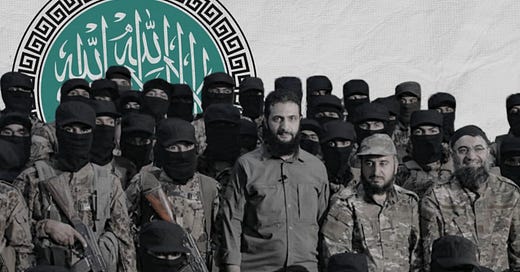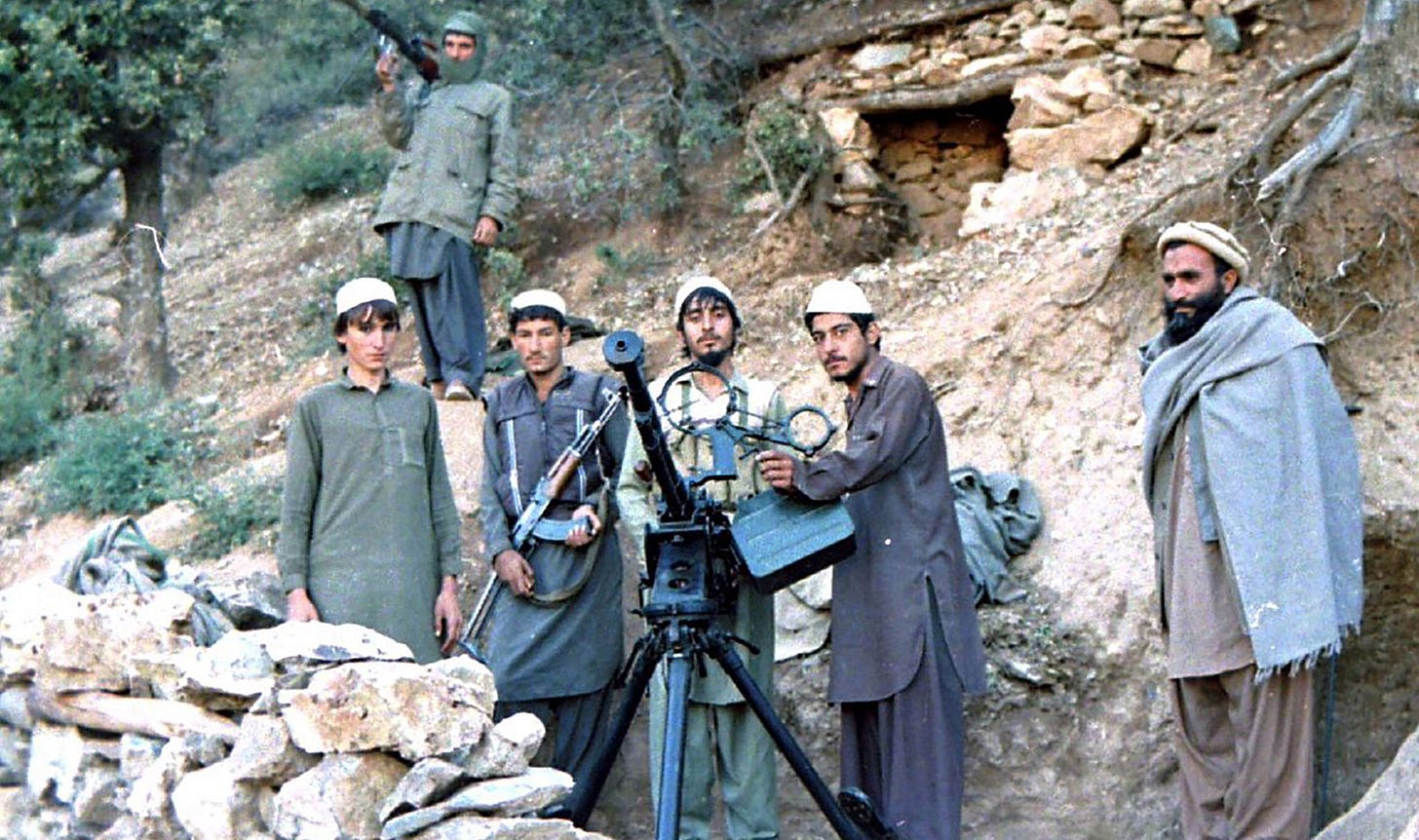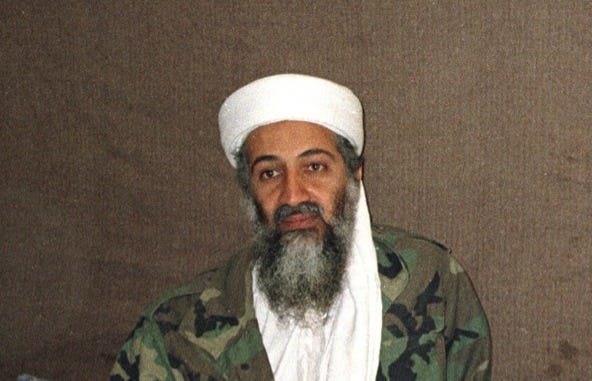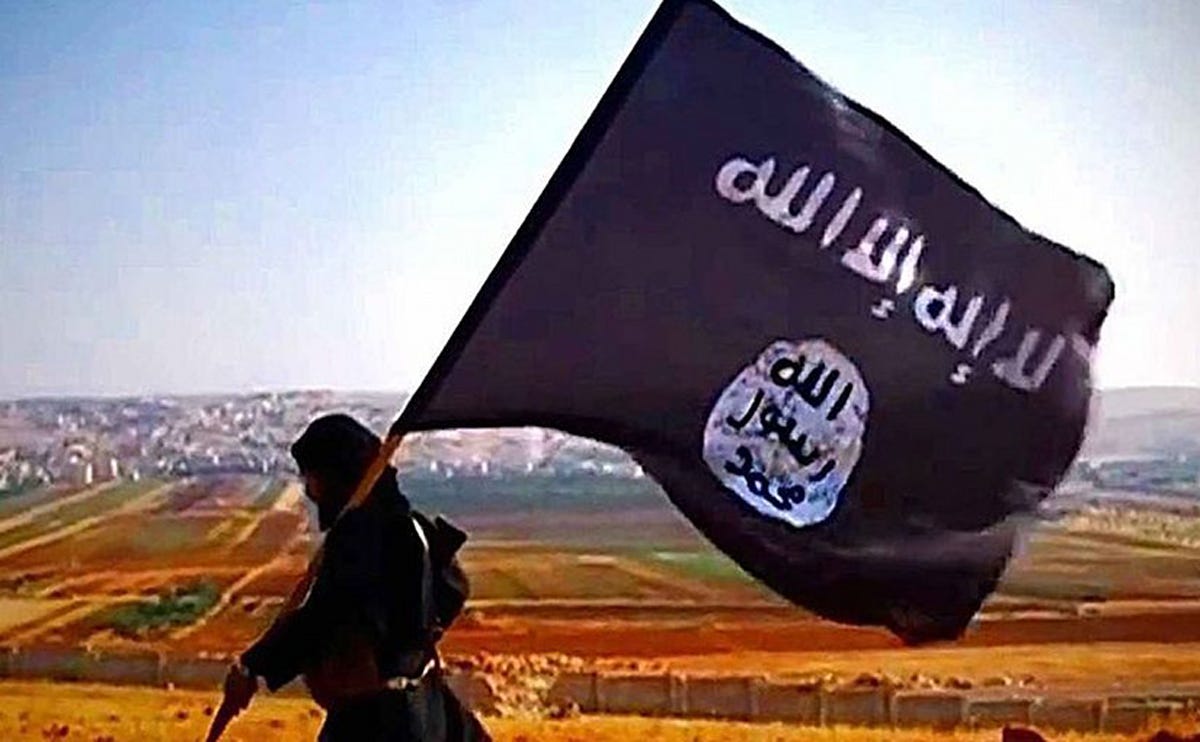"All quiet on the terrorist front"
Are we turning a blind eye towards islamist terrorism in favor of focussing on Russia?
With the events in Ukraine, the US and Israel dominating the news-cycle for the past months, if not year, it seems that the so-called “Global War on Terror” or GWOT has taken a backseat on the global playing field. And for many reasons this might not be a bad thing. The GWOT, which started in the 80’s and 90’s but really gained traction after 9/11 2001, has been in the forefront for many years and essentially replaced the Cold War. Billions and billions of dollars were pumped into “counter-terrorist” operations around the globe and dozens of countries were affected by its intrusive campaigns that resulted in the deaths of thousands of people. The fight against Al Qaida and its affiliates or ISIL and its affiliates dominated not only the news for over two decades but also sucked in the resources of defense departments and intelligence and law enforcement agencies in a majority of countries in Europe, America, Africa, the Middle East and large parts of Asia.
But when Russia invaded Ukraine in 2022 things started to shift. Resources had to be redirected to more “old school” Cold War thinking where Russia and China were again seen as the adversaries instead of focussing on supra-national terrorist groups espousing the establishment of a Caliphate and the destruction of Western values and dominance. And even though terrorists with radical islamist convictions still count for dozens of small scale knife and car attacks across Europe and other parts of the world, with Pakistan experiencing a surge of attacks in or near Balochistan, it seems that the days of the GWOT are somewhat over.
With the October 7th massacre in Israel by Hamas and Islamic Jihad terrorists nobody seemed very keen on making a connection to earlier Jihadist/Islamist terror attacks executed by groups like Al Qaida or ISIL in other countries. The focus was mostly put on the self-proclaimed “Axis of Resistance” against Israel and the US which constituted a conglomeration of Shi’ite terrorist groups across the Middle East supported by Iran. Hezbollah in Lebanon, Iraq and Syria, the Houthi in Yemen with the military support of the Islamic Republican Guards Corps of Iran and the diplomatic support of the government of Qatar overtook any mention of Al Qaida or ISIL.
The fall of the Assad regime in Syria at the end of 2024, orchestrated by radical Islamist insurgent groups, forced the West and its allies across the Middle East to take a fresh new approach on how to deal with people and organizations that had dominated the enemy-list during the GWOT. With the fall of Kabul in 2021, and thus the installment of the Taliban as the new government, the West and others had already started looking the other way by engaging diplomatic relations with the radical islamists government that used to be the main adversary on the battlefield of Afghanistan. But now, in Syria, the media-spin and diplomatic about-face towards dealing with radical jihadists really came to the forefront. Syria’s new leader, and former Al Qaida commander, Ahmad Al-Sharaa, was put forward by Western governments and the media as “reformed and willing to bring Syria into a democratic future”. Anybody mentioning his past crimes and convictions was told they were being Debby Downers and should look to the future. The fact that the new Syrian government does not involve the Kurds, the Alawites, the Druze or women, with Al-Sharaa still refusing to shake hands with women, is not to be mentioned. And please also don’t mention that survivors of the Alawite massacres have described a large part of their attackers as foreign men with long beards presumably from East-Caucus descent.
Behind this push to normalization with former enemies seems to be the United States and Europe with help from countries like Turkey and Qatar. The West mainly wants people to focus their anger and attention towards troubles with Russia, while Turkey and Qatar have aspirations of being the leaders of a strict and pious Muslim oriented Middle East.
Western governments seem to think that its people can only focus on one problem at a time and the need to focus on Russia will supersede any other possible threats. Let elections take care of the fear of the muslim immigrant as long as all the money for defense and intelligence goes to countering whatever Russia is doing. Muslim terrorist just kill citizens while Russia can topple entire governments, countries and maybe even the EU.
Turkey, under the control of devout muslim Erdogan, in the meantime has, like Qatar, always had aspirations to expand its religious and governmental influence across the Middle East. Both countries are known to be very critical of the West and Israel in particular and offer safe havens for leaders of Hamas, Hezbollah and the Muslim Brotherhood. At the same time they pump a lot of money, weapons and other efforts into islamist and jihadist groups that will do their bidding in Syria, northern-Iraq and several countries across north and west Africa. And in contrast to Saudi-Arabia and the UAE, which seem to seek the approval of the West, Turkey and Qatar have no desire to bend at the knees for what they see as Western Imperialism and support for genocide in Gaza by Israel.
This new situation, where the GWOT is put on the backburner, has the risk of leading to intelligence agencies and governments to turning a blind eye towards events that do not fit the current narrative of “all quiet on the terrorist front”.
It is not the first time that the West has turned a blind eye towards the threat of islamists terrorism. During the Cold War Western intelligence agencies like the CIA and others focussed mainly on combatting Communist or Soviet interference. In that war against the USSR the narrative quickly became all about Marxism and the threat of Communist revolution worldwide. Terrorist groups fighting for the Palestinian cause or who aspired to topple governments in Egypt, Syria, Pakistan or else were defined by their reliance on Soviet financial and logistical support. Groups that had strong jihadist beliefs that opposed the West or its allies were simply registered as Marxist. Jihadist groups that opposed the USSR and its allies were congratulated on their strong anti-communist pro-relgious fervor. No jihadist is going to support the God-hating Communists and was therefore a perfect ally with the war in Afghanistan in the 1980’s being the culmination of this thought.
The fact that the larger part of these groups, whether they were supported or not by the West or had a deep hatred towards anything the West stood for was simply ignored. Terrorist groups, clerics, schools, NGO’s and political parties funded by jihadist groups like the Egyptian pan-Arabian Muslim Brotherhood or, for instance, wealthy Saudi royals gained traction all throughout the Cold War. The Iranian islamist revolution in 1979 gained more attention than other similar events that resulted in large changes, but no revolutions, were instigated by students alligned to the Muslim Brotherhood or Saudi sponsored organizations. Pakistan narrowly avoided a revolution and decided to embrace stricter islamist laws and enforced more conservative norms on its people in order to avoid being toppled by jihadists. Countries like Jordan, Kuwait, Syria, Libya, Egypt, Iraq and others gave wide-ranging permissions to their secret services to violently suppress jihadist groups in an effort to avoid becoming a new Iran. It did not mean however that these groups and their sentiments dissappeared from the global stage.
As terrorist organizations accepted help from the US or the USSR, it didn’t matter for them who gave weapons as long as they recieved them, the West decided to ignore signs that these same groups were very keen on hurting them as well as they were hurting the “enemy”. Osama bin Laden and other jihadists who were fighting the Soviets in Afghanistan in the meantime ran organizations and NGO’s in Pakistan to recruit other jihadists to come and join them. The CIA and others just called these volunteers “Arabs” and ignored their religious beliefs, even though Afghani mujahideen were constantly warning them of the dangers of these volunteers who seemed to not have an independent Afghanistan as a goal but were obviously looking to establish a Caliphate from where they could send their armies across the globe to kill the infidels.
At the end of the 1980’s and the beginning of the 1990’s the jihadist groups in Afghanistan and Pakistan were starting to get restless as it was obvious that the Soviets were on the brink of defeat. They were a lot less interested in establishing a new government in Afghanistan and soon left most of the civil war fighting to the locals as they continued to grow their training camps and increased their recruitment of new volunteers for the jihadist cause.
Osama Bin Laden and other leaders like Ayman Al-Zawahiri clashed with their mentor Abdullah Yusuf Azzam not because they had different views on the war in Afghanistan. The rift started because there were different opinions on how and where the “Global Jihad” should be conducted. Bin Laden and Al-Zawahiri wanted to focus on waging war against what they called the fake muslim “puppet”-regimes across the Arab states while Azzam felt it more important to defeat Israel and reclaim the holy sites in the Levant before engaging other adversaries.
This rift defined islamist terrorism for the following decades with some groups focussing on Israel and other groups focussing more on turning the Arab states into a Caliphate. All groups felt that the United States, and is lesser measure Europe, was a legitimate target because both Israel and most Arab leaders recieved military support from the United States. It was mostly Western media and governments that decided that there was a distinction between the goals of these groups.
When Al Qaida gained traction in the 1990’s and conducted several large scale terrorist attacks across the Middle East, Africa, Asia and inside the United States or against US military vessels and installations, the CIA and other agencies were reluctant to put much energy and effort into dismantling the core groups behind these attacks. Arresting individuals or rounding up local terrorist cells was deemed important but actually trying to cut the head of the snake was not prioritized. Agencies were more attracted to conflicts in former Russian republics and former Warsaw pact countries because that is what they were used to. A great deal of focus was put on the pro-Palestinian terrorist groups as a sign of support to Israel, but any mention of jihadism was avoided.
This of course all came to a halt when 9/11 happened in 2001. All warnings of Al Qaida wanting to “hurt” the United States with large scale attacks were ignored in favor of conducting other operations. But now, on 9/12, the “Global War on Terror” was unleashed and everyone who had ever even said a bad word about the US became a target for drone strikes, midnight SEAL team assassinations or faced total war.
The first cracks in the GOTW started when the Syrian civil war broke out. Groups like ISIL were seen as a bigger threat than other jihadist groups who could count on Western support of they focussed some of their rage against ISIL. Gaining influence over a future government in Syria was also a nice benefit. Then October 7th happened and the rest is history.
But that does not mean that the jihadists have simply decided to give up on their dreams and packed up their belongings to go home and relax. The new Taliban regime in Afghanistan has again opened its doors to terrorist groups like Al Qaida and groups like the Haqqani organisation. The spillover effect into Pakistan has not gone unnoticed as seperatist Balochistan terrorist groups have doubled in size and are happily using Afghanistan as a home base. The same goes for seperatist groups in Iran that have increased their attacks on Iranian security forces to the dismay of the ayatollah’s who have threatened war with the Taliban on many occassions.
Hamas, which was set-up by the Muslim Brotherhood and has a strict jihadist outlook, is suffering large defeats in Gaza due to the relentless Israeli attacks. But the images of a fully destroyed Gaza and the reports of thousands of civilian deaths has sparked renewed support for more radical and jihadist groups across the region. A Muslim Brotherhood affiliated political party called the Islamic Action Front gained a large percentage of available seats in the Jordanian parliament in 2024. The percieved lack of support for the Palestinian cause by the Jordanian King has sparked large protests in Jordan and people are attracted to join groups that are more vocal in their support of groups that will support Hamas and its fight against Israel.
The same can be said of support for the Muslim Brotherhood and other jihadist groups in Egypt, even after the brotherhood was banned in 2013 and hundreds of them were imprisoned and even executed. Egyptian born or based Muslim Brotherhood members have been of essential importance to jihadist groups across the region and Egypt’s peace agreements with Israel are a catalyst for the recruitment of new members.
Meanwhile, Erdogan in Turkey has been very vocal about his anger over how Israel is conducting itself in Gaza and the West Bank. Erdogan has not only opened the door for Egyptian Muslim Brotherhood members, Hamas and Hezbollah leaders, but has given Muslim Brotherhood clerics high-ranking positions in his government. Erdogan, who sees himself as a pan-Islamic leader, is more and more open about his aspirations of creating a more pious and conservative Middle East. Turkey also supports the jihadists who ended up toppling the Assad regime and Erdogan is trying his best to blame any attrocities committed by the new Syrian government on anybody but them.
There is a chance that jihadist groups will be allowed to grow in the shadows of other world politics as they did during the Cold War. Ignoring their existence or simply putting them on the shelf as anti-Israel and ignoring their jihadist expansionist wishes could lead to another tragic miscalculation as was done in the 1990’s. It is not only regions like the Sahel, for instance, that have to deal with the threat of jihadist expansionism. The Middle East, Central-Asia and North-Africa all have to deal with growing numbers of jihadist groups. And these groups are undoubtedly planning terrorist attacks. Some to topple local governments in a jihadist copy of the Arab Spring and some will want to hurt the West for their support for Israel or the West’s percieved imperialist aspirations in Syria and Iraq.
Keeping an eye on Russia, China and Iran is important. These countries are actively undermining Western society and would like to see the European Union or NATO fall. Also, believing that the Israel vs Hamas conflict will stay within the borders of Gaza is also naive. And, finally, the rise of anti-immigrant or otherwise Islamophobic political parties across Europe and in the US will feed the recruitment machine of the jihadists. Now is not the time to snooze on the jihadists. They certainly won’t.









